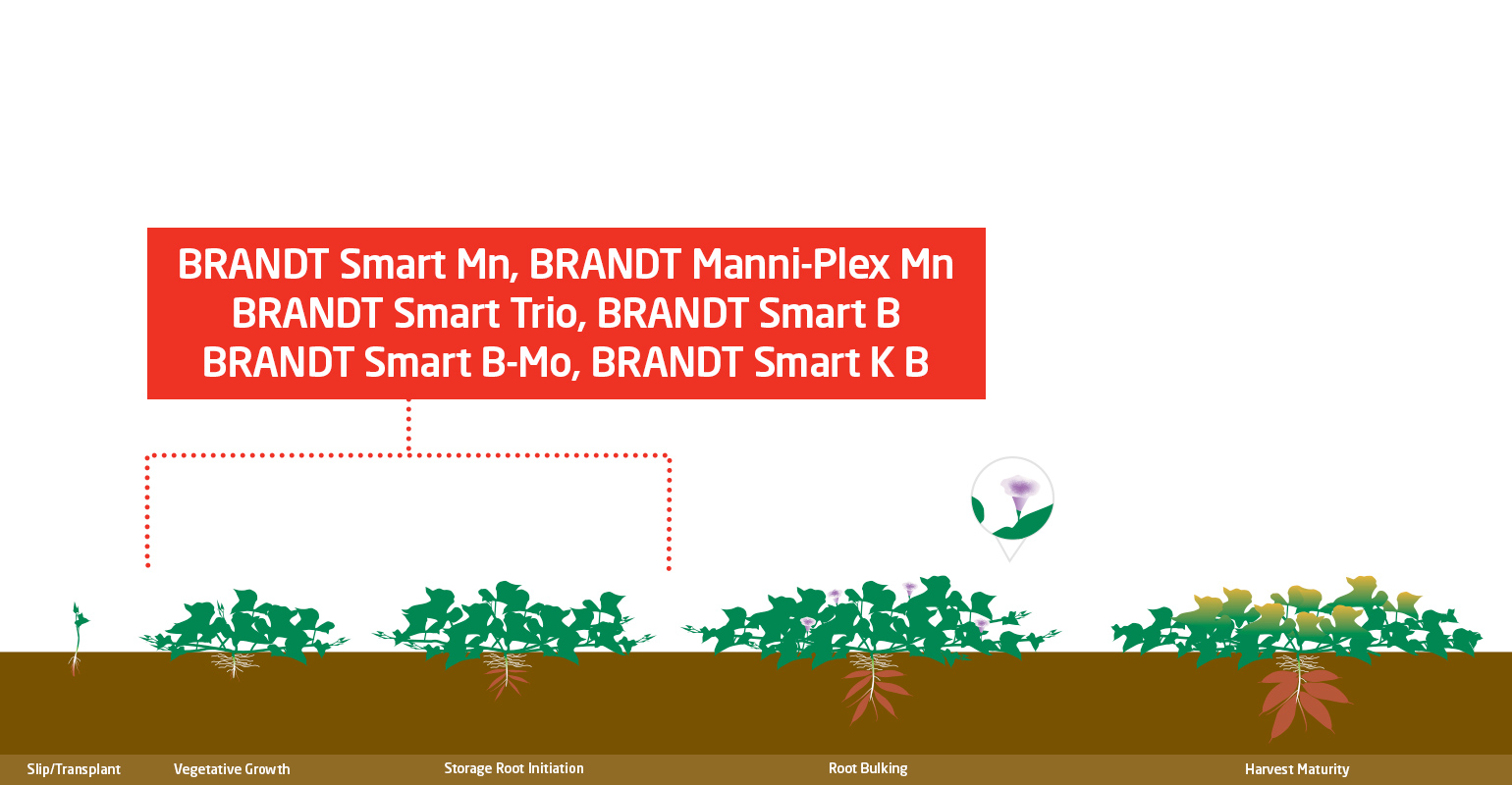Sweet Potato – Opportunities with Micronutrients
May 11, 2020
Agronomics / Background
While sweet potatoes are a fairly forgiving crop, micronutrients are important to maximize the crop’s potential. Boron, manganese and molybdenum are the micronutrients most likely to impact sweet potatoes.
Boron (B) is important to the structure and stability of cell walls. Boron deficiency leads to the weakening of pectin, a protein the plant needs for structural stability. Sufficient levels of boron also help control blister disorder in sweet potatoes.
Manganese (Mn) is a key component of photosynthesis and is a co-factor for a number of enzymes. Low manganese levels leads to lower soluble sugars due to reduced photosynthesis.
Molybdenum (Mo) is required for the assimilation of nitrate taken up by the plant. For this reason, Mo deficiency is often mistaken for nitrogen deficiency. Additionally, Mo becomes less available in acid soils (pH less than 5.5) but these soils are often also low in phosphorus and sulfur, masking the low Mo levels.
Conditions Leading to Nutrient Deficiencies
Sweet potatoes can tolerate drought to some extent but are sensitive to low oxygen supply and cannot withstand waterlogging. Therefore they are most often grown on sandy, well-drained soils. Optimal soil pH is 5.8-6.2 but lower pH can lead to nutrient deficiencies.
Desired Tissue Test Values
Crop: Sweet Potato
Stage: Early vining - most recently matured leaf at petiole
|
Macronutrients |
Micronutrients |
||
|
% |
ppm |
||
|
N |
4 - 5 |
Fe |
40 - 100 |
|
P |
0.3 – 0.5 |
Mn |
40 – 100 |
|
K |
2.5 - 4 |
B |
25 – 60 |
|
Ca |
0.8 – 1.6 |
Cu |
205 - 10 |
|
Mg |
0.4 – 0.8 |
Zn |
20 - 40 |
|
S |
0.2 – 0.6 |
Mo |
0.19 – 0.22 |
*Bryson, Mills, et al. “Plant Analysis Handbook III”. 2014.
Key Application Timings and Rates
The following foliar applications during vegetative growth stages will help increase fertility levels of B, Mo and Mn:
- 8-16 oz per acre of BRANDT Smart B or BRANDT Smart B-Mo.
- 1-2 quarts per acre of BRANDT Smart K B, which includes Mo in addition to K and B, is a good option since potassium is the most important major nutrient for sweet potatoes.
- 1-2 quarts per acre of BRANDT Smart Mn, BRANDT® Manni-Plex® Mn or BRANDT Smart Trio®.


Boron deficiency
All photos courtesy of Lucid Central

Manganese deficiency

Molybdenum deficiency
